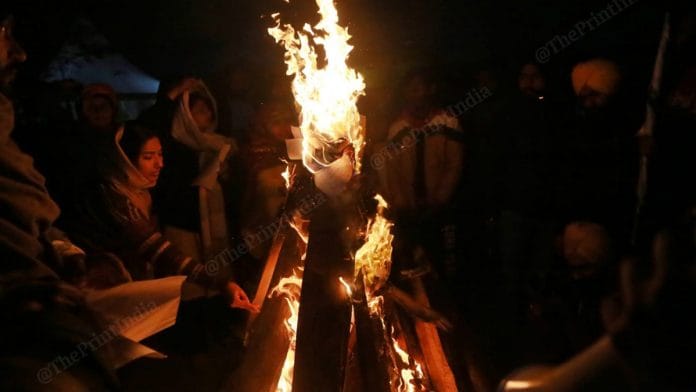On 12 January, the Supreme Court pronounced an order that effectively stayed the implementation of the three farm laws and also led to the formation of a four-member committee — which would hear the central government and agitating farmers and submit a report to the court within two months — in an unprecedented move. Traditionally, the SC has always been wary of interim orders that stay laws passed by the Parliament.
It has always been a common practice in jurisprudence that the court presumes a law was passed by the Parliament keeping in mind the requisite standards of constitutionality. This is because the Parliament derives its strength from the people with legislators being elected directly and indirectly to the upper and lower chambers, respectively.
Therefore, the court stays laws only when a concrete finding of unconstitutionality is presented.
Wary of staying laws in the past
In 2013, an SC bench of Justices G.S. Singhvi and V. Gopala, on the validity of the Cigarettes and Other Tobacco Products Regulation Act, 2003, had said: “At the time of final adjudication, the court can strike down the statute if found ultra vires of the Constitution. However, operation of the statute cannot be stultified by granting an interim order except when the court is convinced that the law is ex-facie unconstitutional.”
While almost a decade has passed since this judgment, more recently, on 6 January, the SC agreed to look at the constitutional validity of the anti-conversion laws passed by Uttar Pradesh and Uttarakhand. However, it refused to stay the laws.
Surprisingly, in the case of the farm laws issue, the Supreme Court has not even heard the petitions that have challenged the constitutional validity of the farm laws. Yet, the court has decided to put the laws on hold.
Attorney General K.K. Venugopal argued in court that a law passed by the legislature could be stayed only on three grounds — First, lack of legal competence that is the legislature lacking authority to make laws on a particular subject matter, second, a law that is violative of fundamental rights and third, a law that is violative of other provisions of the Constitution.
According to the Attorney General, the court did not record any finding that is prima facie unconstitutional regarding the farm laws.
To this, the court responded that it was not putting on hold the laws themselves but just staying the implementation of these laws by the executive, which in the court’s view could be done without getting into the nitty-gritty of the law. Frankly, it is hard to make out the difference between the two.
Unnecessary intervention
As the deadlock between the central government and the farmer unions continues, such an intervention by the Supreme Court is of no assistance and is uncalled for as the issue at hand is a policy-making issue. Therefore, the solution for this can only be arrived at when both sides reach a common ground.
While the Supreme Court has constituted a four-member committee that intends to carry forward talks between the two sides, its ability to bring an end to the stalemate is limited. Farmer unions have already refused to participate in any proceedings with the committee because its members have expressed support for the laws in the past.
Furthermore, besides evaluating merits and demerits of the law, recommending certain amendments that could be made or suggesting a complete repeal of such laws, there is nothing much that the committee can do to resolve the stalemate.
Instead of intervening in such negotiations, it would have been wiser for the SC to hear the pleas that challenge the constitutionality of the laws and examine all the provisions of these laws to ascertain their constitutionality.
With the Supreme Court overreaching in the matters of public policy and trying to resolve political gridlocks, there is a new emergence of disruption as far as the constitutional system of checks and balances in the country is concerned.
Such an intervention can set a dangerous precedent where laws can be suspended without any legal reasoning or backing. Therefore, much needs to be undone.
Abhinav N. Jha is a student of St Xavier’s College, Mumbai






